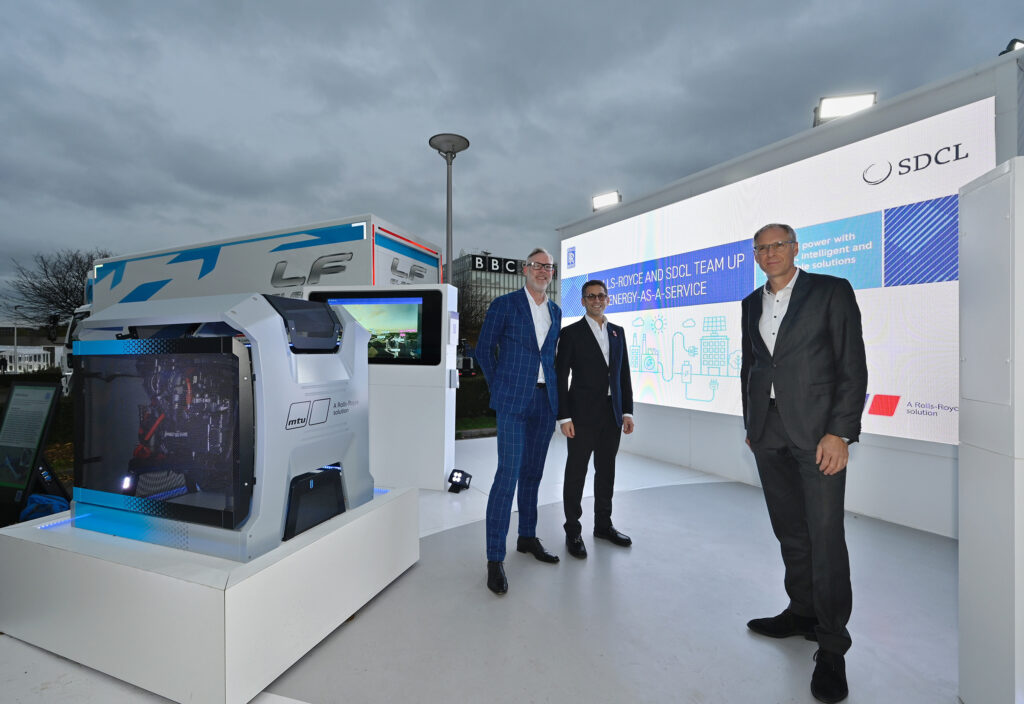Rolls-Royce is aiming to accelerate the take-up of renewable energy through offering Energy-as-a-Service solutions in a new collaboration with investment firm Sustainable Development Capital LLP (SDCL).
The agreement allows Rolls-Royce to provide customers with electricity and/or heat generated by a sustainable and efficient energy system as a subscription service, therefore removing the need for customers to secure up-front infrastructure finance or operate the system themselves.
It’s hoped this will then accelerate the uptake of renewable energy, with the portfolio of energy systems that can be made available through Energy-as-a-Service ranging from smaller plants using combined heat and power units to battery containers and microgrid solutions.
Potential use cases for Energy-as-a-Service ranges from providing sustainable and reliable power for communities in remote areas that aren’t connected to a public power grid, to industrial parks that want to be supplied with green power as well as emergency back-up and mines that want to replace old, inefficient equipment.
Rolls-Royce is to work with SDCL and other partners to design, finance, build, commission and operate new projects, with SDCL having over a decade of experience in developing and financing clean and decentralized energy infrastructure projects in the UK, continental Europe, North America and Asia.
Andreas Görtz, vice president power generation at Rolls-Royce Power Systems, said that Energy-as-a-Service is particular interesting for companies needing to adapt their energy supply to new circumstances, such as an expansion that requires more power or new regulatory requirements.
“Because this often involves investing in equipment, such as a microgrid, that requires expertise to operate, it’s a challenge for customers to do this on their own. By offering Energy-as-a-Service, we can help them overcome that challenge.”
Rolls-Royce currently has a portfolio of microgrid systems through its Power Systems business unit that brings together renewable energy sources such as solar and wind with mtu-branded battery storage and gensets – an engine and electrical generator – to ensure reliable power generation.
In 2017, it chose solar PV to help reduce its own emissions, with a 3.42MW rooftop solar array installed atop its Bristol factory.
Other Energy-as-a-Service offerings to have been launched in recent years include Centrica’s – launched in 2020 with a focus on those looking to make an investment in energy saving technologies – and one launched by SSE and Smarter Grid Solutions in 2019.






